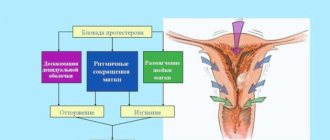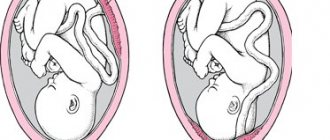The process of expulsion, or abortion, causes discomfort in women. This procedure is unpleasant and has a very adverse effect, as a rule, on various body systems.
Of course, artificial penetration during natural processes does not pass without a trace. Therefore, antibiotics after an abortion are good helpers that will help you recover faster.
Types of procedures
Today, women are offered three main options:
- Vacuum aspiration or suction of the fertilized egg through a plastic tube due to the negative pressure that is created in the uterine cavity. Perhaps exclusively in the early stages of pregnancy, many medical centers do it only within 20 days after the delay is confirmed;
- Medical (tablet) abortion, that is, an intervention carried out with special hormonal-based drugs. The method is quite traumatic for the endocrine system, but is considered relatively gentle;
- A surgical operation involving curettage of the uterine cavity along with all its contents. It guarantees that the woman will not remain pregnant; it can be done in the later stages, up to 12 weeks.
These methods differ in their approaches, the way they influence the tissue, and the way in which the interruption occurs. The first two options allow local anesthesia, the third - exclusively general. Manipulations also differ in duration and contraindications. Therefore, it is completely logical to assume that they will differ in consequences.
Symptoms after a vacuum abortion
Vacuum abortion (mini-abortion) is considered quite gentle. It is carried out even before the fertilized egg attaches to the uterine cavity, so strong influence is not required here. But this is an interference with the natural reproductive processes occurring in the body, so you may feel unwell after a mini-abortion. The following symptoms are considered normal (on the day of intervention):
- dizziness;
- nausea;
- Weakness;
- slight increase in temperature in some cases;
- aching pain in the lower abdomen some time after the effect of the painkiller has worn off;
- spasms;
- drowsiness;
- slight bleeding.
An individual woman should not have all the symptoms at the same time, although the body’s reaction is largely individual. During the first month after a vacuum abortion, bleeding is possible. This is not menstruation, but a physiological reaction to too drastic hormonal changes. If there is too much discharge, it comes profusely, for more than several days in a row, and does not plan to stop, then you need to consult a gynecologist. It is likely that we are talking about bleeding. Sometimes this is how remnants of the fertilized egg come out that have not been completely removed. In any case, medical assistance will not hurt.
Medium-term consequences and complications
Medium-term effects occur within a few weeks of medical abortion.
Bleeding
This symptom appears early, some time after taking the pills. If the bleeding volume corresponds to menstrual bleeding (no more than 1-2 pads per hour), lasts 7-14 days and gradually decreases, then there is no cause for concern - this is not a complication, but a normal process.
In some cases, women notice discharge for up to 30 days, but it is spotting and is not accompanied by pain or other symptoms. If the bleeding is heavy (2-3 or more pads per hour), prolonged and/or accompanied by pain, then you must immediately inform your doctor. This complication is rare and develops against the background of incomplete abortion or infection.
The longer the pregnancy, the higher the risk of abnormal bleeding. In 0.4% of cases, blood transfusion is performed, in 2.6% - suction curettage. Without timely medical assistance, death cannot be ruled out.
Continuing pregnancy or incomplete termination
In 1-4% of cases, the fertilized egg is not expelled from the uterus or is not completely expelled. This can happen for several reasons: the dose of the drug is incorrectly calculated, the timing of the procedure is too late, there are hormonal disorders or inflammatory processes in the woman’s body.
Such consequences after medical termination of pregnancy are accompanied by prolonged and undiminished bleeding, nagging or cramping pain in the lower abdomen, increased temperature, and fever. You cannot cope with them on your own; hemostatic drugs will not help.
An ultrasound and follow-up are required. If this is not done, then in the event of an incomplete abortion, the remnants of the fetal egg will lead to the spread of infection, general blood poisoning and death. If the pregnancy continues to develop, then the risk of having a child with serious malformations is high.
Pain in the lower abdomen
Normally, cramps in the uterus gradually disappear after the abortion is completed. If the pain continues, this may be a sign of infection or incomplete termination of pregnancy. This symptom requires examination by a gynecologist and ultrasound.
Headaches and dizziness
These consequences of medical abortion develop in 20% of women. As a rule, the cause is a large loss of blood. Weakness, decreased blood pressure, and lightheadedness are also observed.
If dizziness is accompanied by bleeding, then the help of a doctor is necessary. In another case, you can take an analgesic, rest more often, and change your body position gradually.
Symptoms after medical abortion
Medical abortion is considered quite safe due to the nature of its effect on the uterine tissue, but it leads to a real shock to the body’s hormonal system. In addition, many feel that it is a rather difficult procedure. After the fertilized egg is released (the pregnancy is terminated), women usually begin to feel noticeable relief.
If the process itself was accompanied by severe cramps, sharp pain, diarrhea, vomiting, then after the end there will be severe weakness and you may want to sleep. Symptoms of dehydration are common, which is easy to explain: the body loses a lot of fluid, this is not only blood, but also loose stools, as well as vomiting and profuse sweat.
Reactions to the drugs used may vary depending on the individual characteristics of the body. Doctors note: if you are allergic to specific antibiotics, you should have a medical abortion in a medical facility so as not to deprive yourself of the opportunity to receive qualified help as soon as possible. In 1 case out of 10,000, infectious-toxic shock is possible, which can be fatal. This is another argument in favor of strict medical control.
During the first month after a medical abortion was performed, menstruation may occur with irregular cycles.
Often your periods are heavier than usual and can be quite painful. Women are advised not to endure it, but to take painkillers (Ibuprofen, Nimesil, Ketanov). If the bleeding lasts for quite a long time, consult a doctor immediately.
Symptoms after surgical abortion
The most severe consequences can be after a surgical abortion. A lot depends on how long the woman had it done. The quality of anesthesia is also important - it can cause complications on its own. Therefore, symptoms after surgical abortion are divided into groups:
- relating to the endocrine system;
- affecting the cardiovascular;
- associated directly with the genitals.
The woman’s hormonal system is experiencing a real shock, and the later the abortion was performed, the stronger the corresponding changes occurred, the deeper the restructuring was. The need to restructure quite sharply again can lead to disruptions expressed in impaired thermoregulation (vaguely reminiscent of menopause), an unstable emotional state, decreased immunity, weakness, dizziness, and so on.
If a woman was suffering from any chronic diseases at the time of the abortion, especially if they were related to the endocrine system, in most cases an exacerbation is inevitable.
Anesthesia has a greater effect on the heart and blood vessels, so it is vitally important not to skimp on it. A cheap composition can lead to very serious consequences, from which the body will take quite a long time to recover. And remember that any anesthesia is a burden on the heart.
As for the internal genital organs, surgical abortion always injures the tissue. As a result, the woman will feel heaviness and pain inside; sexual life for her for several months will be not only prohibited, but simply impossible due to great discomfort. Your doctor will tell you how exactly the described symptoms can be mitigated.
- Drug method or vacuum aspiration?
- Anesthesia for abortion
- The impact of the abortion procedure on the body
Rehabilitation treatment
It is extremely important to help the body resume its natural functioning as quickly as possible. Termination of pregnancy is a gross intervention in hormonal levels, which has an extremely negative impact on the physical and mental state. Antibiotics after an abortion should help the body recover and prevent the possibility of developing possible inflammation.
The psychological state of a woman is of no small importance. Therefore, if the decision to have an abortion was difficult for you, you need to seek help from a professional psychologist. Be that as it may, there are circumstances in which it is more humane to end a life at its very beginning than to then leave the baby in an orphanage.
Myths and reality of medical abortion
Every woman who is not yet ready to become a mother should think about means of protecting herself from unwanted pregnancy in order to maintain her health and have healthy children in the future. In the event of an unwanted pregnancy, in our medical center you will receive qualified assistance to terminate it. Before 12 weeks of pregnancy, you can have a mini-abortion, medical abortion, or instrumental abortion.
All of the listed methods of terminating pregnancy have time limits, as well as their own indications and contraindications. The choice of method of termination of pregnancy in our center is made together with the patient after a thorough gynecological examination. Medical abortion is considered the least traumatic for the female body.
Conservative or medical abortion
is an abortion using synthetic steroidal antiprogestogens.
The basis of medical abortion
is the modern drug mifepristone:
Mifegin
(France),
Pencrofton
(Russia).
This is the only drug certified for use in Russia for medical abortion
in a specialized medical institution.
The drug Mifegin
causes the body to reject the fertilized egg.
In combination with Mifegin,
drugs are taken that contract the uterus, which leads to miscarriage.
Medical termination of pregnancy to terminate an unplanned pregnancy has been used abroad since 1980, and in Russia - since 1998. The current indication for the use of mifepristone is termination of intrauterine pregnancy in the early stages (42 days of amenorrhea). However, there are studies (Hatcher R.A. 1993, Manusharova R.A., Cherkezova E.I., 2002) during which these drugs were used before 9 weeks of pregnancy. In addition, literature data indicate the effectiveness of using mifepristone for the preparation and induction of labor during full-term pregnancy. Currently, mifepristone is used in France, the USA, Sweden, China, Russia, Great Britain, India and other countries.
The absence of surgical intervention with the whole range of various complications: from hormonal stress to mechanical damage to the uterus, cervical canal and infertility in the future - this is the main difference between a medical abortion and a traditional, surgical (or mechanical) abortion.
Preparations for general strengthening of the body
Pills recommended to be taken after an abortion should also include a complex of vitamins. First of all, they are aimed at restoring the female immune system after suffering such a serious trauma as abortion. In addition, some certain antibiotics and contraceptives can have a negative effect on the female body, which has not yet had time to get stronger after an abortion.
Therefore, based on the general state of women's health, therapy with vitamins is recommended in conjunction with the use of all essential medications after an abortion (antibiotics, anti-inflammatory drugs and hormonal contraceptives).
The psychological stress received by a woman during an abortion also requires certain treatment. For these purposes, specially created vitamin-mineral complexes containing a large amount of B vitamins can be used.
The duration of this course of treatment is usually from one to three months.
Benefits of medical abortion
does not require hospital stay and anesthesia,
This method is the least traumatic, i.e. eliminates the risk of complications such as infection, adhesions, perforation (trauma) of the uterine cavity, development of endometritis,
there is no risk of contracting viral infections (hepatitis, HIV),
avoids the problem of Rh conflict between mother and fetus in Rh negative women,
practically no different from heavy menstruation and is psychologically perceived as a natural process,
psychologically easier to bear.
The effectiveness of medical abortion is 96-98%.
Recovery after abortion
- Drink at least 1.5 liters of water per day;
- If possible, stay in hospital for several days;
- Take vitamins, eat healthy foods, and get plenty of sleep;
- Take a course of vitamins and medications prescribed by your doctor;
- Do not engage in physical activity for at least 2 weeks;
- It is prohibited to lift weights exceeding 6 kg;
- Do not use vaginal accessories (tampons);
- Avoid sex for a period of 3-4 weeks;
- Do not take a bath and avoid going to the sauna for a month;
- Take oral contraceptives, which will most likely be prescribed by your doctor to normalize hormonal levels and avoid re-pregnancy.
There are cases when a woman is against taking oral hormonal contraceptives for personal or religious reasons. To avoid repeat pregnancy, it is necessary to use any contraception, since the body is capable of ovulation (conception) 2 weeks after an abortion. This is very important, since such a pregnancy can have great negative consequences.
It is very important and necessary to be examined by a gynecologist 2 weeks after the abortion, who will check the condition of the uterus and make sure that there is no inflammation. The first thing to check is the uterus for infection. It is important to make sure that the cervix is completely closed - this may take 2 weeks or more after the abortion. When the cervix is open, there is a chance that bacteria can enter the uterine cavity and cause painful and dangerous infections. As soon as the cervix returns to its normal “closed” state, you can return to your usual lifestyle - swimming, taking a bath, and resuming sexual intercourse.
Diagnosis of post-abortion complications
Regardless of the type of abortion, after about a week the gynecologist will definitely send the woman for an ultrasound of the uterus to make sure that there is no embryo or its particles left in the cavity. The doctor also examines the patient in a gynecological chair and performs palpation - palpation of the uterus. The organ is restored to its natural size in a few days, so an enlarged uterus, uneven surface and loose structure indicate pathology.
Hormone levels are determined in the laboratory. To do this, you need to take a blood test for hormones. Based on the results, you can understand how to restore hormonal levels and avoid weight gain and other troubles.
If inflammation is suspected, a general blood test and vaginal smears are taken. Timely fight against infections is necessary, since abortion significantly reduces immunity and any opportunistic bacteria can become active. Such microorganisms are always present in the human body, but begin to cause harm only under certain circumstances, when the body is weak. In other words, it is not necessary to get inflammation after an abortion due to infection from the outside - the infection is already present and is simply waiting in the wings.
A frequent visitor after termination of pregnancy is thrush. The candida fungus that causes this disease (candidiasis) is also a conditional pathogen and is activated when the immune system is weakened. And behind it, when most of the beneficial microflora in the vagina is suppressed, other dangerous microorganisms are drawn in. To identify candidiasis, it is enough to take a smear, although the symptoms of this most unpleasant disease cannot be confused with anything - constant itching, pain, burning, plus discharge similar to fresh cottage cheese, are familiar to many women firsthand.
Symptoms after an abortion when you should consult a doctor
Increased temperature (more than 37.2 0 C) 2 weeks after the abortion, which is not relieved by medications for 2 days or more;- Heavy bleeding that tends to increase. Bleeding after an abortion is an inevitable phenomenon, but it should decrease, and not vice versa;
- Blood clots the size of grapes or larger;
- Severe pain in the lower abdomen;
- Unpleasant and specific vaginal odor;
- Long-term continuation of pregnancy symptoms;
- blood in stool or urine;
- Frequent dizziness, nausea, fainting.
How to relieve pain and cramps
After an abortion, spasmodic pain is constant and can come and go. There is nothing scary about the fact that spasms, cramps and pain accompany the patient in the first two weeks after an abortion.
- To relieve symptoms, it is recommended to take medications such as Paracetamol and Ibuprofen. It is forbidden to take Aspirin, as it tends to increase bleeding.
- If there is pain in the lower abdomen, you can place a heating pad or a bottle of warm water wrapped in a towel, which will alleviate the condition.
- It is necessary to surround yourself with comfort, tranquility and devote a lot of time to sleep.
Long-term effects and complications
Long-term consequences of medical abortion are rare but most difficult to treat. They appear after several months and even years.
Menstrual irregularities
If menstruation began on time (counting from the date of abortion) or was delayed by 7-10 days, this is a sign that the reproductive and endocrine systems have recovered. About 10-15% of women note that in the first few cycles, menstruation is more painful and heavy, but soon becomes the same as before.
A complication will be indicated by a delay of more than 40 days or heavy periods, accompanied by cramping intense pain, fever, and deterioration in general well-being.
In the first case, either a re-occurrence of pregnancy is possible (this happens already 2 weeks after an abortion), or a disruption in the functioning of the ovaries. It is necessary to consult a doctor, he will determine the cause and prescribe the necessary procedures. Oral contraceptives are often used to restore hormonal levels.
If your periods are very heavy, with severe pain and a rise in temperature, then perhaps particles of the fertilized egg remain in the uterus and/or an infection has developed.
After a doctor’s examination and ultrasound, curettage is performed and antibiotics are prescribed.
Infectious and inflammatory diseases
They develop after a medical abortion as an exacerbation of chronic forms or due to remaining particles of the fertilized egg. If a woman had hidden, sluggish infectious and inflammatory processes (salpingitis, gonorrhea, etc.) before the abortion, then after the abortion procedure they may begin to progress.
This is manifested by pain in the lower abdomen, discharge with an unpleasant odor and a greenish color, purulent impurities, and increased temperature. After laboratory diagnosis, the doctor prescribes antibiotics, most often in a hospital setting.
Infertility
The causes of this serious consequence are hormonal disorders or inflammatory diseases of the uterus and appendages.
In the first case, the balance of male and female sex hormones is disrupted, as a result of which the process of fertilization of the egg and its attachment to the wall of the uterus is hampered.
Inflammatory processes can lead to the formation of adhesions and narrowing of the lumen of the fallopian tubes. This prevents the egg from moving to the uterus.
Changes in emotional state, character
Sometimes hormonal imbalance and the abortion procedure itself affect the characteristics of a woman’s psyche. She may become overly irritable, aggressive or whiny, depressed, lethargic.
At first, such reactions are observed only in difficult situations, for example, during or after a quarrel. But soon they become total, arising without external causes.
To eliminate the problem, you need to see a doctor: a psychiatrist or psychotherapist, or consult a psychologist.
Medical abortion and its consequences are still being studied. Research confirms that the earlier the abortion procedure is performed, the lower the risk of complications.
The most common among them are bleeding, pain in the lower abdomen, and infection. The consequences are associated with hormonal disorders and the risk of incomplete release of the fertilized egg. Disruptions in the menstrual cycle, development of inflammation, and infertility may occur.
Menstrual cycle after abortion
The menstrual cycle resumes after about 27 days, since abortion is considered the first day of the cycle. If menstrual flow has not started and is delayed, this may be a signal of either pregnancy or the appearance of an infectious disease in the body.
To determine the cause of the absence of menstrual bleeding, it is necessary to undergo an ultrasound examination. There are cases when an ultrasound shows that the body is in order, then you should expect the resumption of the cycle no later than after 5 weeks. The cycle is fully restored after 3 months.
Recovery after medical abortion
The recovery process can be significantly delayed if the fetus is not completely removed. Another factor in protracted recovery is endocrine disorders in the woman’s body before the abortion (hypothyroidism, polycystic disease, thyrotoxicosis, etc.). Therefore, doctors prescribe some health measures:
- Oral contraceptives to stabilize hormonal levels during the recovery period;
- Weekly antibiotic therapy to prevent septic complications;
- Bed rest and physiotherapy.
To check the condition of the genital organs, the patient should consult a gynecologist to take a smear from the cervical canal and posterior vaginal fornix to identify infection and vaginosis, if any. A smear is considered bad if the level of leukocytes is high. If bacteria are detected, additional examinations are carried out to determine the woman’s sensitivity to the antibiotics she is taking. Further, medications may be prescribed to normalize the microflora of the pelvic organs.
The gynecologist also conducts a control ultrasound of the pelvic organs to diagnose the uterus and its endometrium. After termination of pregnancy, an ultrasound examination usually reveals a thinned layer of the endometrium, and due to hormonal imbalance, an accumulation of follicular formations (cysts) in the ovaries, which can resolve within a month of taking hormonal oral contraceptives (COCs).
Contraception issues
Immediately after an abortion, or better yet before the procedure, it is necessary to select a method of contraception. The optimal solution in this case is to take hormonal contraceptive pills, as they mitigate the effects of hormonal stress, prevent neuroendocrine disorders, and, in addition, significantly reduce the risk of developing septic complications after abortion, which is explained by the following mechanisms:
- reducing the amount of blood lost during menstruation (blood acts as a breeding ground for microbes);
- thickening of the cervical mucus, which not only prevents the penetration of “live creatures” into the uterine cavity, but also pathogens;
- the cervical canal does not expand so significantly during menstruation (protection against infection);
- the intensity of uterine contractions is reduced, thereby reducing the risk of the spread of pathogens of infectious diseases from the uterus to the tubes.
It is recommended to take low-dose oral contraceptives, the dose of ethinyl estradiol in which does not exceed 35 mcg, since estrogens increase blood clotting, and hypercoagulation is noted during the first 20 to 30 days after termination of pregnancy. Such drugs include Regulon, Rigevidon, Mercilon.
Taking the pills should start on the day of the abortion and continue according to the schedule. The day of termination of pregnancy will be counted as the first day of a new cycle.
Recovery after surgical abortion
In case of injuries to the genital organs and tract after an instrumental abortion, the correction process can be very delayed. This operation occurs “by touch”, and, despite the doctor’s qualifications, there is a possibility of damage to the uterus, cervix and cervical canal.
In case of damage to the uterus, a woman experiences the following symptoms:
- Severe, cutting pain in the lower abdomen;
- High temperature (38 0 C);
- Bleeding;
- Weakness and dizziness;
- Pallor, tachycardia and low blood pressure.
Confirmation of damage is necessary using transvaginal ultrasound examination of the genital organs and laparoscopy.
A patient with uterine injuries must be hospitalized for surgery and suturing of the wounds. After surgical treatment, rehabilitation therapy includes bed rest and complete physical and psychological rest. Rehabilitation therapy consists of a course of antibacterial drugs, diet, and physical labor is excluded. Subsequent pregnancy is possible only after 1 year and under the strict guidance of an obstetrician-gynecologist.
Do antibiotics harm the body?
Doctors hear this question several times a day. Of course, these are far from vitamins, and they have quite a strong effect on our body. However, if we are talking about the prevention of inflammatory processes, complications, repeated operations, which in the most severe cases lead to final infertility, then taking antibiotics is the least of the evils. Therefore, your task is to choose a competent doctor and entrust him with control over rehabilitation therapy. It is he who will decide whether to take antibiotics after an abortion, which ones are ideal in your particular case. He will also have to calculate the correct dosage, duration and intensity of treatment. Most of the modern drugs are well tolerated and relatively safe for the body.
How long does it take to recover after an abortion?
The period in which a woman can completely return to normal condition, first of all, depends on the quality of the abortion performed, on the patient’s condition before the termination of pregnancy and on the chosen method of rehabilitation.
Another decisive factor is the number of weeks the aborted woman was pregnant: the shorter the pregnancy, the faster the level of placental hormones produced by the body during pregnancy decreases.
It is unlikely that it will be possible to bring the body back to normal in the shortest possible time with expensive drugs. The speed of recovery directly depends on individual characteristics, physical and psychological health.
It is not recommended to plan pregnancy in less than six months.
Advice from an expert
The use of medications after an abortion requires a reasoned approach that takes into account all the nuances of the condition of the female body.
You cannot take medications at your own discretion or recommendations from friends and relatives, so as not to cause harm to your body. It is also unsafe to rely on the instructions offered for the drug, because each woman’s body, like her illnesses, is individual.
Therefore, before you start taking pills after an abortion, be sure to visit an antenatal clinic.










